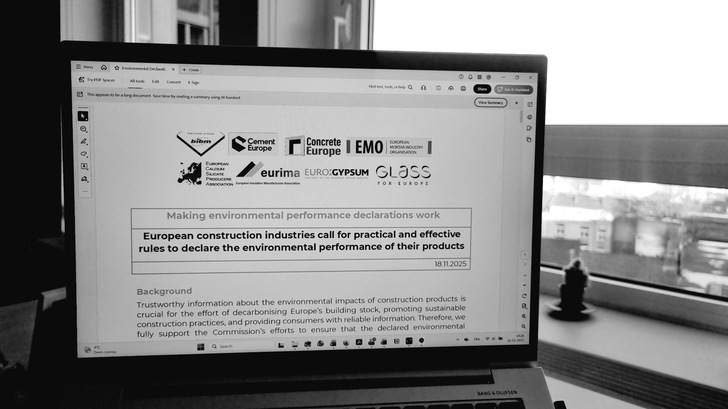The document released by Glass for Europe and other organisations raises concerns about discontinuing the use of weighted averages when calculating environmental data for products. For example, taking weighted averages between production sites that manufacture the same products. In terms of consistency with past methodology, data quality and burdens on the construction product value chain, such a discontinuity would be very damaging.
The paper also outlines issues with generalising the use of worst-case scenarios when making Declarations of Performance and Conformity under the new Construction Products Regulation (CPR), and the risks of incentivising the provision of data which are highly tied to each specific product’s proper impact.
Clear and sensible rules for all stakeholders
This initiative follows an earlier one, where Glass for Europe addressed how the above-mentioned changes envisaged by authorities would specifically impact the flat glass value chain.
The current contribution is now part of a broader call for pushing the establishment of sensible rules for all stakeholders. It is supported by seven other trade associations representing producers of precast concrete, concrete, cement, mortar, calcium silicate, mineral wool and gypsum.
Consumers need reliable data
Glass for Europe remains at the disposal of authorities and stakeholders to inform about the functioning of the flat glass value chain and the rules surrounding the practice of Life Cycle Assessment (LCA) and Environmental Product Declarations (EPDs) in the glass sector.
Meanwhile, Glass for Europe is also working together with other associations through Construction Products Europe to develop more detailed and consolidated proposals aimed at ensuring that the rules are suitable for all stakeholders while guaranteeing the reliability of the data provided to consumers.
You can read the full paper here.













